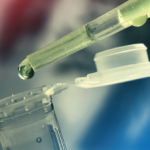Dr. Georges encourages rheumatologists to develop close educational relationships with their patients, helping steer them to reputable centers for these treatments. He also recommends referring physicians seek transplant evaluation before the disease is too advanced. “Patients with disease factors of poor prognosis should be referred to transplant ASAP, because the earlier you do it, the less organ damage there is,” says Dr. Georges. “And there is a lower risk of death from transplant. Once organ function is very impaired by the disease process, there is a greater risk of transplant mortality.”
Moving forward, as HSCT for systemic sclerosis moves into more standard treatment, other severe autoimmune diseases may follow. Dr. Georges adds, “There are many rare neurologic autoimmune diseases that weren’t well recognized even 20 years ago, and some of these appear to be responding very well to HSCT. There may be other less frequently observed rheumatological diseases that may benefit, especially if there is not an effective treatment available for them.”
Ruth Jessen Hickman, MD, is a graduate of the Indiana University School of Medicine. She is a freelance medical and science writer living in Bloomington, Ind.
References
- Chang C. Unmet needs in the treatment of autoimmunity: From aspirin to stem cells. Autoimmun Rev. 2014 Apr–May;13(4–5):331–346.
- Tamm M, Gratwohl A, Tichelli A, et al. Autologous haemopoietic stem cell transplantation in a patient with severe pulmonary hypertension complicating connective tissue disease. Ann Rheum Dis. 1996 Oct;55(6):779–780.
- Swart JF, Delemarre EM, van Wijk F, et al. Haematopoietic stem cell transplantation for autoimmune diseases. Nat Rev Rheumatol. 2017 Apr;13(4):244–256.
- Tyndall A, Saccardi R. Haematopoietic stem cell transplantation in the treatment of severe autoimmune disease: Results from phase I/II studies, prospective randomized trials and future directions. Clin Exp Immunol. 2005 Jul;141(1):1–9.
- Alexander T, Arnold R, Hiepe F, Radbruch A. Resetting the immune system with immunoablation and autologous haematopoietic stem cell transplantation in autoimmune diseases. Clin Exp Rheumatol. 2016 Jul–Aug;34(4 Suppl 98):53–57.
- Kelsey PJ, Oliveira MC, Badoglio M, et al. Haematopoietic stem cell transplantation in autoimmune diseases: From basic science to clinical practice. Curr Res Transl Med. 2016;64(2):71–82.
- Sureda A, Bader P, Cesaro S, et al. Indications for allo- and auto-SCT for haematological diseases, solid tumours and immune disorders: Current practice in Europe, 2015. Bone Marrow Transplant. 2015 Aug;50(8):1037–1056.
- Daikeler T, Tichelli A, Passweg J. Complications of autologous hematopoietic stem cell transplantation for patients with autoimmune diseases. Pediatr Res. 2012 Apr;71(4 Pt 2):439–444.
- Atkins HL, Muraro PA, van Laar JM, Pavletic SZ. Autologous hematopoietic stem cell transplantation for autoimmune disease—Is it now ready for prime time? Biol Blood Marrow Transplant. 2012 Jan;18(1 Suppl):S177–S183.
- Illei GG, Cervera R, Burt RK, et al. Current state and future directions of autologous hematopoietic stem cell transplantation in systemic lupus erythematosus. Ann Rheum Dis. 2011 Dec;70(12):2071–2074.
- Hadavi S, Noyce AJ, Leslie RD, Giovannoni G. Stiff person syndrome. Pract Neurol. 2011 Oct;11(5):272–282.
- Helfgott SM. Stiff-man syndrome: From the bedside to the bench. Arthritis Rheum. 1999 Jul;42(7):1312–1320.
- Jachiet V, Laine L, Gendre T, et al. Acute respiratory failure in a patient with stiff-person syndrome. Neurocrit Care. 2016 Dec;25(3):455–457.
- Sanders S, Bredeson C, Pringle CE, et al. Autologous stem cell transplantation for stiff person syndrome: Two cases from the Ottawa blood and marrow transplant program. JAMA Neurol. 2014 Oct;71(10):1296–1299.
- Binks M, Passweg JR, Furst D, et al. PhaseI/II trial of autologous stem cell transplantation in systemic sclerosis: Procedure related mortality and impact on skin disease. Ann Rheum Dis. 2001 Jun;60(6):577–584.
- Farge D, Passweg J, van Laar JM, et al. Autologous stem cell transplantation in the treatment of systemic sclerosis: Report from the EBMT/EULAR Registry. Ann Rheum Dis. 2004 Aug;63(8):974–981.
- Nash RA, McSweeney PA, Crofford LJ, et al. High-dose immunosuppressive therapy and autologous hematopoietic cell transplantation for severe systemic sclerosis. Blood. 2007 Aug 15;110(4):1388–1396.
- Vonk MC, Marjanovic Z, vanden Hoogen FH, et al. Long-term follow-up results after autologous haematopoietic stem cell transplantation for severe systemic sclerosis. Ann Rheum Dis. 2008 Jan;67(1):98–104.
- Burt RK, Shah SJ, Dill K, et al. Autologous non-myeloablative haemopoietic stem-cell transplantation compared with pulse cyclophosphamide once per month for systemic sclerosis (ASSIST): An open-label, randomised phase 2 trial. Lancet. 2011 Aug 6;378(9790):498–506.
- Burt RK, Oliveira MC, Shah SJ, et al. Cardiac involvement and treatment-related mortality after non-myeloablative haemopoietic stem-cell transplantation with unselected autologous peripheral blood for patients with systemic sclerosis: A retrospective analysis. Lancet. 2013 Mar 30;381(9872):1116–1124.
- Van Laar JM, Farge D, Sont JK, et al. Autologous hematopoietic stem cell transplantation vs intravenous pulse cyclophosphamide in diffuse cutaneous systemic sclerosis: A randomized clinical trial. JAMA. 2014;311(24):2490–2498.
